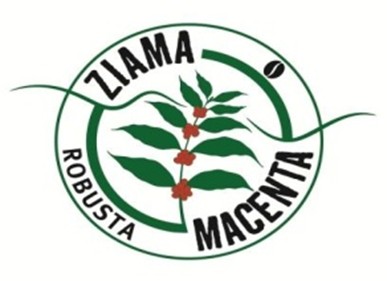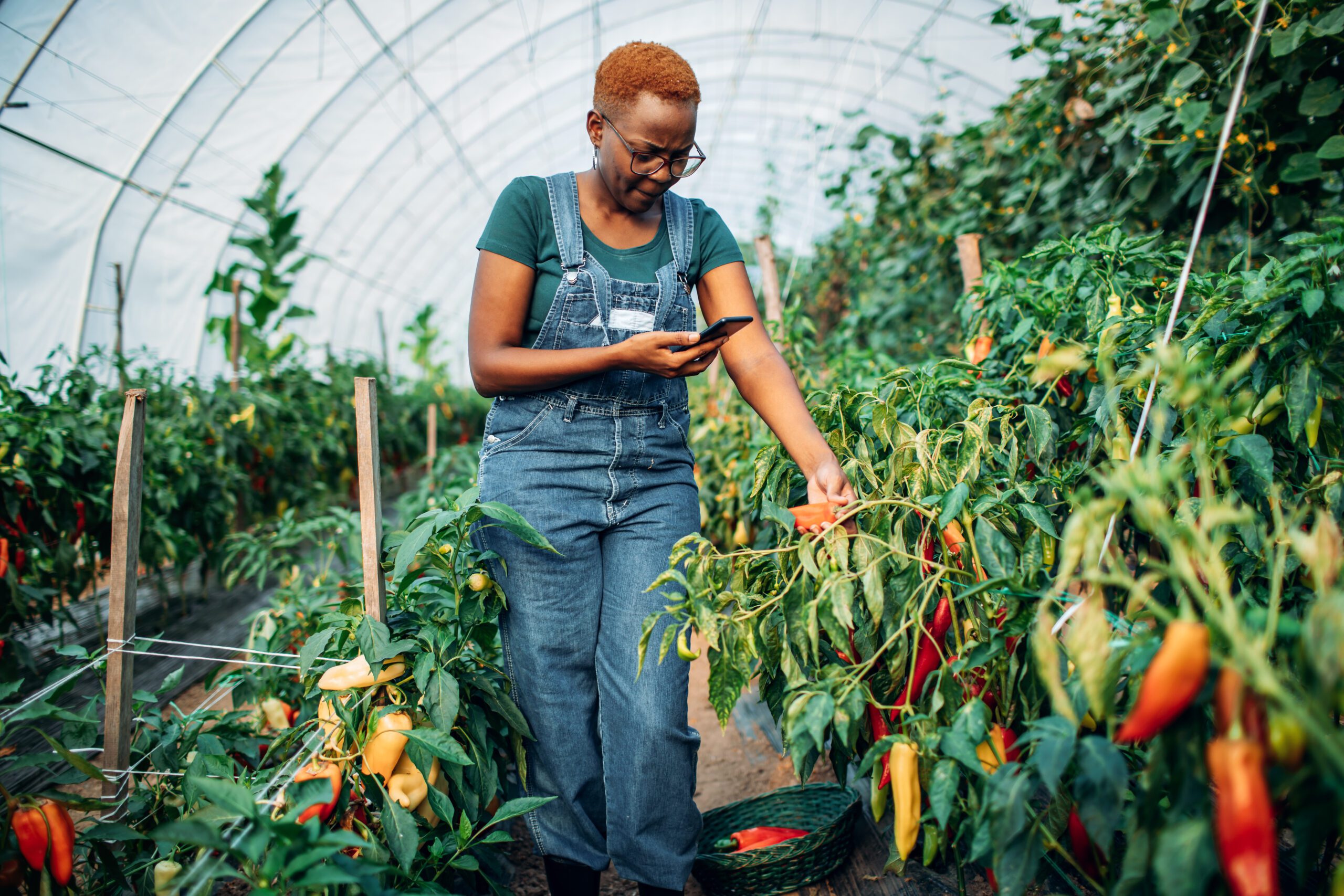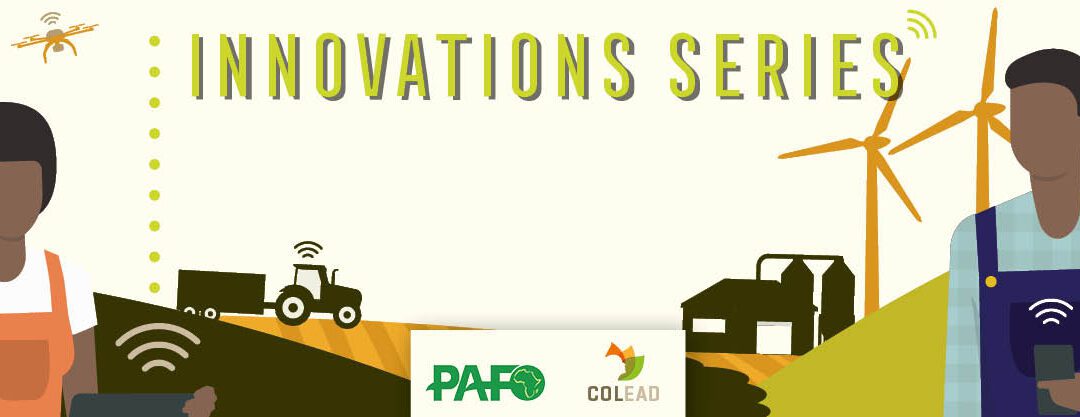ADECAM is a community-driven organisation in Guinea dedicated to protecting, promoting, and...


Smart Farming, also known as Precision Agriculture or Farming, is a farming management concept using digital techniques to monitor and optimize agricultural production processes. This approach aims at increasing the quantity and quality of agricultural output while reducing agricultural inputs (water, energy, fertilizers, pesticides, etc.).
Smart Farming uses a range of technology such as GPS, sensor technology, satellite navigation, ICT, and robotics, etc. to observe (near real-time) crops, fields, and animals and support strategic decision-making at the farm level and operational actions at the plant level. Satellites and drones can, for example, provide images with key information on the health of plants in the field. The collected data is recorded and analyzed by specific software that can ascertain the condition of the crop, soil, or animal and any deficiencies or needs. Based on the diagnosis, the software and/or the farmer can determine if specific actions (e.g., watering, treatment) are needed and if so, which. Smart Farming can, for example, be used for measuring variations in conditions within a field and recommending the quantity of fertilizer that is needed, thus optimizing the use of farming inputs and increasing production performance, which, in turn, can reduce production and labor costs.
Digital technologies are making Smart Farming solutions increasingly affordable and accessible to even smallholder farmers in developing countries. The adoption of these technologies is also driven by the growing mobile phone and Internet penetration and the falling costs of data worldwide (UNDP 2021). The mobile phone is perhaps the most transformative technology enabling precision agriculture for smallholder farmers. Mobile phones enable two-way communication between farmers and experts, real-time monitoring, and the digitization and easy collection of field data. Smartphones with cameras, GPS, various sensors, and a processor offer additional capabilities. Cost-effective and scalable mobile phone-based farming advisory services are already helping millions of farmers worldwide, overcoming the challenges with conventional agricultural extension. Through mobile phones, farmers can receive customized and localized advice on what, when, and how to grow, as well as alerts on weather, pests, and diseases (UNDP 2021).
Innovation skills are critical for micro, small and medium-sized enterprises (MSMEs) and entrepreneurs in the agriculture sector to remain competitive and adapt to changing market conditions and developing new products, services, and processes to meet customer needs and stay ahead of the competition. It implies risk-taking, the willingness to try new and untested ideas, and to embrace uncertainty; creativity, the ability to generate new ideas and approaches, and to think outside the box; flexibility, the ability to adapt to changing market conditions, and to pivot the business strategy as needed.
Technical and technological skills and technological literacy are needed to improve business processes and create new products and services. The use of technologies (i.e. robots, temperature and moisture sensors, aerial images, GPS technology, and blockchain) can improve efficiency, transparency, and traceability in the food chain through improved irrigation, cultivation techniques, harvesting, storage, and transportation.
Join our Forum to discuss and explore how to encourage innovations across agricultural value chains to transform food systems in African, Caribbean and Pacific countries and beyond, promote sustainable agriculture & leverage investments. Share insights, ask questions, and collaborate on innovative solutions for a greener future.

ADECAM is a community-driven organisation in Guinea dedicated to protecting, promoting, and...

Foresight: Key agrifood changes impacting entrepreneurs (South-South)

Innovation and technology adoption by entrepreneurs
Blue Shell Productions is a consulting firm based in Barbados, specializing in fisheries management and blue economy development
3BA Allamanda Enterprise is a woman-led company from Trinidad and Tobago that combines sustainable agri-processing with clean energy innovation, producing organic dried herbs and spices under the...
Innovation and technology adoption
Red Diamond Compost is a biotech social enterprise that converts organic waste materials and invasive plant species into green agrochemical solutions, such as fertilisers and biostimulants. The...
Technology innovations for fruits and vegetables quality control
Panuka Farm produces fresh vegetables in Zambia using agricultural techniques adapted to cimate change and combines productivity with biodiversity conservation. The company was presented in the...
e–GRANARY is a mobile platform that supports (smallholder) farmers in Kenya, Uganda, and Rwanda to increase their yields, grow land under cultivation and improve their income. It brings together...
Technological solutions can support (smallholder) farmers with improving their operations, increasing their outcomes and enhancing their resilience and sustainability. In the Innovations Session...
Ngwala Inventions is a bio-tech and agri-tech company using organic wastes such as garbage, fruit peels and animal urine mixed with botanical extracts to form two-in-one organic pesticides and...